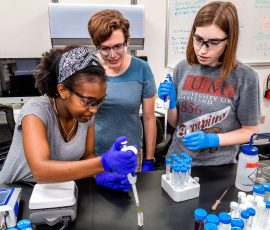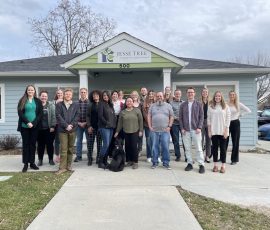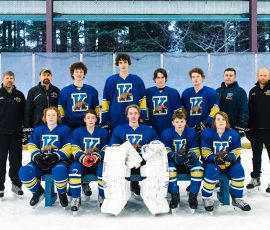 The Antibody Technology Resource lab at Fred Hutch is poised to expand, thanks to new support from the Vancouver, Washington–based M. J. Murdock Charitable Trust.
The Antibody Technology Resource lab at Fred Hutch is poised to expand, thanks to new support from the Vancouver, Washington–based M. J. Murdock Charitable Trust.
The $475,000 grant is matched by more than $550,000 from the Hutch’s privately supported Hartwell Innovation Fund to further grow the facility’s instrumentation.
“Over the past five years Fred Hutch’s Antibody Technology Resource has been making innovative strides in building a cutting-edge antibody-discovery platform,” said Dr. Ben Hoffstrom, director of Antibody Technology. The trust’s gift “will enable a long-range vision for antibody technology at Fred Hutch.”
As a core resource, the lab offers custom service and expertise to researchers at Fred Hutch and other institutions in the region. Its specialty is generating and screening monoclonal antibodies, proteins made by the immune system that attach to any foreign molecular target. Due to their natural ability to bind to particular targets, antibodies have a wide range of applications, including in diagnostic tests and as cancer-fighting drugs.
“The new instrumentation will not only double our overall capacity, it will allow us to screen many more antibody-producing hybridoma cells,” Hoffstrom explained (referring to certain lab-created hybrid cells used as antibody factories). That will, in turn, “increase the likelihood of success in finding antibodies for specific applications, such as diagnostic tools for histology or potential immunotherapy reagents.”
With the new capacity, Hoffstrom said, the Antibody Technology Resource can better integrate with other core resources at the Hutch, particularly the Molecular Design and Therapeutics lab, which designs and produces custom proteins using the same software and similar automation. With such integration, Hoffstrom envisions forming an “antibody drug-discovery pipeline” to speed the development of targeted new drugs.
“This is really critically important for the Hutch,” said Dr. Colin Correnti, director of protein sciences for the Molecular Design and Therapeutics core. This milestone is the culmination of several years of effort for the two core labs, Correnti said, to create a “one-stop shop” at Fred Hutch for antibody-based drug discovery from start to finish, just like at a biotech company.
“It is incredibly impactful and enabling to be able to do that ― it’s not something we’ve ever been able to do here at the Hutch,” Correnti said.
The centerpiece of the new instrumentation is a robot that allows the antibody core’s entire antibody-screening process to be completely automated, operating without human intervention. Once this custom workstation is installed in early 2017, Hoffstrom said, the core will be able to work around the clock to generate potentially thousands of antibodies at a time for a particular project and conduct screens to find the small handful that are likely to work best to target a specific molecule.
“Now, the way we do [screening] is we have [processes] operating independently with a lot of manual intervention at each of those stages,” Hoffstrom said. The new instrumentation “is going to enable us to launch screens at 5 o’clock in the afternoon, then harvest the data the next day.”
The instruments will also add new automated capacities to the core lab’s operations, including the ability to isolate the DNA that codes for particular antibodies. Specialized new software will integrate the vast amount of data generated by the system and allow the team to analyze each step in the process, which will facilitate further optimization of the platform.
The antibody core’s clients currently include scientists throughout the Hutch and the Fred Hutch/University of Washington Cancer Consortium, biotech companies, and several universities and research institutes primarily on the West Coast. Clients are working on a range of projects, including an HIV vaccine and cancer-killing engineered immune cells.
Hoffstrom said that the core provides more extensive screening than commercial labs, screening for antibodies to up to five targets at once, for the price of one. And while some antibodies are already commercially available to researchers, he explained, they often do not actually bind specifically to the molecule they are supposed to target, making custom antibodies useful in many different areas of research.
“That is ubiquitous with a number of different antibodies in the field,” Hoffstrom said. “Often research teams are using suboptimal reagents and they don’t realize that we can make better antibodies for slightly more than the cost of the ones that are currently available.”
― Susan Keown / Fred Hutch News Service
Find the article on fredhutch.org here








